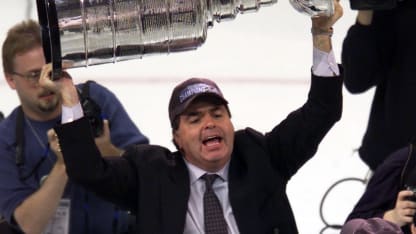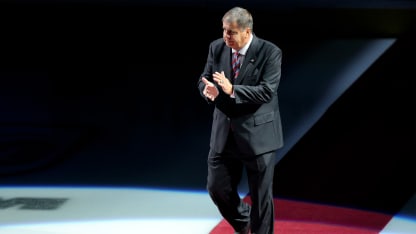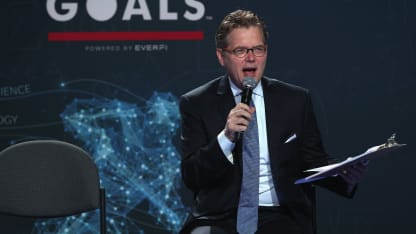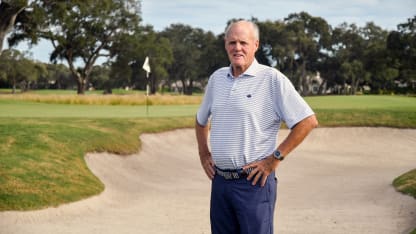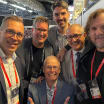The 2023 Hockey Hall of Fame induction is Nov. 13. This class includes Henrik Lundqvist, Tom Barrasso, Pierre Turgeon, Mike Vernon, Caroline Ouellette, Ken Hitchcock and Pierre Lacroix. Here NHL.com staff writer Derek Van Diest profiles Lacroix.
Pierre Lacroix left a lasting impression during his time in the NHL and is well deserving of his induction into the Hockey Hall of Fame according to those who knew him well.
A player agent turned general manager, Lacroix was the architect of two Stanley Cup championship teams with the Colorado Avalanche, building a powerhouse in the mid-1990s that stayed near the top of the NHL standings for over a decade.
Lacroix's impact in Colorado is still being felt today and he will be inducted posthumously into the Hockey Hall of Fame in the Builder Category. Lacroix died on Dec. 13, 2020, at the age of 72, and is survived by his wife Colombe, and sons Eric, who played in the NHL, and Martin.
"I think his record speaks for itself," former Avalanche captain and current president of hockey operations Joe Sakic said. "He came into a young team learning how to win and takes over. I remember the first phone call I had with him when he was hired as general manager, and you could just tell his passion and his commitment and his whole goal was winning, and it was so believable and everything he said he backed up with the things he did."
Lacroix began his hockey career as a player agent, starting his own agency, Jandec Inc., which focused on young talent in Quebec. Goalies Patrick Roy, Jocelyn Thibault and forward Alexandre Daigle were among some of his high-profile clients.
A native of Montreal, Quebec, Lacroix ran the agency for two decades before he was hired to take over the Quebec Nordiques, who featured a young and talented roster led by Sakic. The Nordiques had rebuilt through the NHL Draft and were ready to challenge for the Stanley Cup when Lacroix was brought on board in May 1994, replacing Pierre Page.
Although they won the Presidents' Trophy in 1994-95 for having the best record in the NHL, the Nordiques were upset in Eastern Conference Quarterfinals by the New York Rangers in six games and relocated to Denver the following season.
Lacroix moved with the organization and instilled a family-orientated culture with the Avalanche, who won the Stanley Cup in their first season in Denver in 1996.
"I think one of the most impressive things about him is that it was family, and he wanted a family environment. He wanted to have the chemistry and the close relationships in the locker room and with the players and the wives," Sakic said. "He was able to separate that when it was time for a business decision on what was best for the team. He would always say, 'Do what's best for the logo,' and that's what he did. You would think that with the close-knit group that we had and with us having that family environment, it would be hard to do, but he was able to separate those, and he was tremendous guy."
